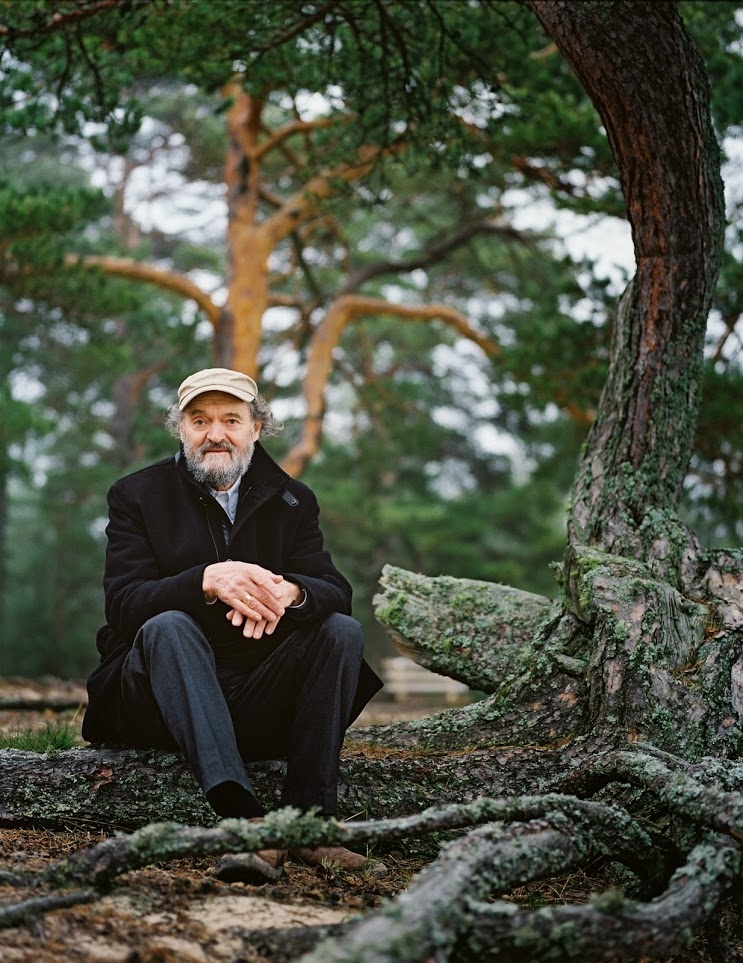
The Estonian composer's work aims to carry you away.
by Jake Cline
Ten years have passed since Arvo Pärt’s “Swansong” received its first performance, courtesy of the Vienna Philharmonic at the 2014 Mozartwoche Festival in Salzburg, Austria. Pärt had written the piece just months before, when the Estonian composer was in his late 70s, but the origins of the warm, prayerful music are far older.
Pärt adapted “Swansong” from “Littlemore Tractus,” his choral-and-organ composition inspired by a sermon written by 19th century British cardinal John Henry Newman. Both pieces, like much of Pärt’s work, reach for the divine, with numinous voices and supplicating instruments forming cathedral atmospheres that seem to expand even when the music is at its most still. These compositions, to be sure, are heavy with reverence, and even sound a bit ritualistic at times, but the demands they make upon a listener are light: They simply ask to carry you away. (Rotterdam Philharmonic Orchestra will share that request when it opens its March 7 concert at the Arsht Center with "Swansong.")
In 1999, Pärt was commissioned to write “Littlemore Tractus” by Bernhard Schünemann, the vicar of Littlemore, a district in Oxford, England where Newman lived and worked and where in 1843 the then Anglican priest delivered his most famous sermon, titled “Wisdom and Innocence.” Born in 1801, Newman was the leader of the Oxford movement, which aimed to return the Church of England to its Catholic roots. In 1845, he converted to Catholicism and became one of the church’s most influential thinkers. Pope Francis canonized him in 2019. Last year, Pärt included “Littlemore Tractus” on Tractus, an album recorded by the Estonian Philharmonic Chamber Choir, the Tallinn Chamber Orchestra and conductor Tõnu Kaljuste.

(Arvo Pärt in 2014. Photo by Birgit Püve.)
For Pärt, whose large body of work includes politically daring and even avant-garde efforts, religious belief and music are inseparable. “Religion and life — it is all the same,” he told The New York Times in 2010, adding: “The old music, when it was written, the focus of this music was the Holy Scripture for composers for centuries. It was the reality for every artist. Through one, you can understand the other.”
Of his commission, timed to coincide with the 200th anniversary of Newman’s birth, Schünemann wrote, “Arvo Pärt, with his mold-breaking new style of composing, which I would like to call ‘holy minimalism,’ has uniquely engaged a new generation of listeners, crossing the boundaries of the classical, popular and the spiritual.”
One of Pärt’s most vocal fans, R.E.M. singer Michael Stipe, told The New York Times, “I was attracted to the unbelievable calm and brilliance of his music, and a seeming simplicity. As a musician and an artist, you realize that within its simplicity, it’s incredibly complex. It brings one to a total meditative state. It’s amazing, amazing music.”



